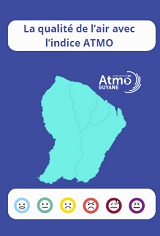Blada.com
mardi 03 février
Boîtes aux lettres
Courrier des lecteurs
Petites annonces
Emploi / Formation
Covoiturage
Infos citoyennes
Infos citoyennes
02/11/21
Au Suriname, des raisons d’espérer...
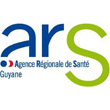 Nos voisins ont enregistré plusieurs jours avec zéro décès liés au Covid-19 en octobre, ce qui n’était pas arrivé depuis mai. Plus de la moitié de la population éligible est désormais vaccinée. Au point que le ministre de la Santé publique envisage de faire payer les soins Covid « à ceux qui ont fait consciemment le choix » de ne pas se protéger.
Nos voisins ont enregistré plusieurs jours avec zéro décès liés au Covid-19 en octobre, ce qui n’était pas arrivé depuis mai. Plus de la moitié de la population éligible est désormais vaccinée. Au point que le ministre de la Santé publique envisage de faire payer les soins Covid « à ceux qui ont fait consciemment le choix » de ne pas se protéger.
En octobre, le Suriname a connu quatre journées (hors dimanche) sans décès lié au Covid-19. Depuis le 12 mai, il n’en avait enregistré que trois. Un soulagement alors que, le mois dernier, le pays a franchi la barre des mille décès provoqués par le virus. « Il y a toujours de nombreux cas, mais ils provoquent moins d’hospitalisations qu’il y a un an, constate Eric Gernez, consultant en entreprise à Paramaribo et correspondant local de France-Guyane. Les hôpitaux ne sont pas pleins. Une quinzaine de lits sont occupés en soins intensifs. »
Ce ralentissement et surtout ce moindre impact sur les hôpitaux ont une explication, selon lui : le haut niveau d’immunité atteint par la population, que ce soit grâce à la vaccination ou suite à une contamination : le mois dernier, le Suriname a aussi franchi la barre des 50 % de sa cible vaccinale protégée (51,78 % contre 34 % en Guyane) et près de 50 000 habitants ont été testés positifs au Sars-CoV-2. Et encore, ce dernier chiffre traduit très mal la réalité : à 70 euros, le test RT-PCR n’est utilisé que par les personnes en ayant les moyens, parce qu’elles ont des symptômes ou parce qu’elles doivent voyager. Des régions entières, dans l’intérieur et aux frontières, n’ont guère l’occasion d’apercevoir un écouvillon. Eric Gernez estime que « les trois quarts » de la population de Paramaribo est immunisée, par exemple. A l’inverse, « les habitants de l’intérieur sont, de loin, les moins vaccinés. »
La vaccination a connu une accélération fulgurante au mois de mai. Plusieurs lundis consécutifs, le gouvernement a annoncé avoir franchi la barre des 10 000 injections au cours du week-end. « Beaucoup de gens étaient dans l’attente de pouvoir se faire vacciner, se souvient-il. A partir du moment où ça a été organisé, que l’information a été bien transmise, ils y sont allés. Cela correspondait aussi à une forte hausse du nombre de cas, ce qui a peut-être motivé certaines personnes aussi. » Preuve de cette envie de se faire vacciner, avant que les doses ne soient disponibles en nombre, des malandrins demandaient « 200 à 300 euros » pour emmener des habitants de la capitale se faire vacciner à Saint-Laurent du Maroni. Ce juteux trafic a pris fin rapidement, dès que les doses ont été disponibles : « C’est du passé. Aujourd’hui, on a du Pfizer, du Janssen… On a même envoyé des vaccins en Jamaïque parce qu’on en avait trop et que la date de péremption approchait », relate Eric Gernez.
Quelques antivax se font entendre malgré tout. Ils sont menés par des évangélistes et une ancienne ministre du gouvernement Bouterse. « Cela permet d’affaiblir un gouvernement qui n’a pas beaucoup d’autorité », suppose le consultant. L’actuel ministre des Affaires étrangères, en revanche, a évoqué il y a quelques jours la possibilité de mettre en place un passe sanitaire, à l’image de ce qui existe en Guyane française et dans de nombreux pays du monde. Le ministre de la Santé est allé encore plus loin, il y a dix jours, en évoquant devant le Parlement la possibilité de faire payer les soins liés au Covid-19 aux personnes non vaccinées : « C’est aussi un choix individuel pour lequel l'individu devra logiquement payer. Il s'agit de réfléchir à la manière de passer des soins Covid financés par l'État, qui représentent une charge énorme pour notre budget, à une responsabilité partagée par l’État ou à une responsabilité individuelle. Ainsi, en plus de Mohana (nom englobant le port du masque et le respect des gestes barrières), nous pouvons maintenant prendre le vaccin pour réduire le risque de Covid-19. Si l'on sait que l'on peut prévenir le Covid et que l’on choisit consciemment de ne pas le faire, il faut aussi se préparer à assumer les coûts lorsqu'on tombe malade. »
Pour Eric Gernez, cette menace est surtout rhétorique : « Actuellement, le remboursement des soins est très chaotique. Je ne suis pas sûr que cela change beaucoup. » Les soins sont très inégaux selon les hôpitaux. Un hôpital Covid a ouvert dans le district de Wanica, au sud de Paramaribo, au début de la pandémie. Dans la capitale, l’hôpital Saint-Vincent offre des soins « au niveau de la Guyane », suppose le consultant. L’hôpital Diaconesses fonctionne avec les moyens du bord. Quant à l’hôpital académique, « je n’y enverrais pas un membre de ma famille ». L’aide matérielle de la Guyane a été appréciée, que ce soit avec Air Liquide pour de l’oxygène, ou bientôt avec le Chog pour des anticoagulants. « Il y a eu des articles de presse. Le ministre a envoyé ses remerciements à l’ambassadeur de France », se souvient-il. Les Pays-Bas ont envoyé des vaccins, du matériel. Des soignants sont venus en renfort.
Sur le plan sanitaire, Eric Gernez est confiant : « Je pense que nous sommes en fin de vague. La vaccination augmente. On enregistre moins de décès. » Mais le pays fait face à l’une des pires crises économiques de son histoire. Le tourisme (hôtels, casinos…) regrouperaient 40 % des emplois non qualifiés. La pandémie a mis ce secteur sur le flanc.
Cet article est issu de la Lettre pro de l’Agence régionale de santé. Vous pouvez vous y abonner en remplissant le formulaire suivant : https://forms.sbc28.com/5a8bed50b85b5350ef1cd117/t13M7zUZQi2XMq5E3DdnhQ/0WQoeDwjRXqJblCpKbLDzA/form.html
Our neighbors recorded several days with zero Covid-19-related deaths in October, which had not happened since May. More than half of the eligible population is now vaccinated. To the point that the Minister of Public Health plans to charge Covid care "to those who have consciously made the choice" not to protect themselves.
In October, Suriname experienced four days (excluding Sunday) without death linked to Covid-19. As of May 12, he had only recorded three. A relief as, last month, the country passed the milestone of one thousand deaths from the virus. "There are still many cases, but they are causing fewer hospitalizations than a year ago," said Eric Gernez, business consultant in Paramaribo and local correspondent for France-French Guiana. The hospitals are not full. About fifteen beds are occupied in intensive care. "
This slowdown and especially this lower impact on hospitals have an explanation, according to him: the high level of immunity reached by the population, whether thanks to vaccination or following contamination: last month, Suriname also crossed the bar of 50% of its protected vaccine target (51.78% against 34% in French Guiana) and nearly 50,000 inhabitants have tested positive for Sars-CoV-2. And again, this last figure does not reflect reality very well: at 70 euros, the RT-PCR test is only used by people who can afford it, because they have symptoms or because they have to travel. Entire regions, inland and at borders, have little opportunity to spot a swab. Eric Gernez estimates that “three quarters” of the population of Paramaribo is immune, for example. Conversely, "the inhabitants of the interior are by far the least vaccinated. "
Vaccination accelerated dramatically in May. Several consecutive Mondays, the government announced that it had crossed the 10,000 injection mark over the weekend. “A lot of people were waiting to get vaccinated,” he recalls. From the moment that it was organized, that the information was transmitted well, they went there. It also corresponded to a sharp rise in the number of cases, which may have motivated some people as well.“ Proof of this desire to be vaccinated, before the doses are available in number, the gangsters asked for“ 200 to 300 euros ”to take residents of the capital to be vaccinated in Saint-Laurent du Maroni. This juicy traffic ended quickly, as soon as the doses were available: "It’s a thing of the past. Today, we have Pfizer, Janssen ... We even sent vaccines to Jamaica because we had too many and the expiration date was approaching," says Eric Gernez.
Some antivax are heard despite everything. They are led by evangelists and a former minister in the Bouterse government. "It weakens a government that doesn't have a lot of authority," the consultant supposes. The current Minister of Foreign Affairs, on the other hand, mentioned a few days ago the possibility of setting up a health pass, like what exists in French Guiana and in many countries around the world. The Minister of Health went even further, ten days ago, by raising before Parliament the possibility of charging unvaccinated people for care linked to Covid-19: "It is also an individual choice for which the logically, the individual will have to pay. It's about thinking about how to move from state-funded Covid care, which is a huge burden on our budget, to shared state responsibility or individual responsibility. So, in addition to Mohana (name encompassing wearing a mask and respecting barrier gestures), we can now take the vaccine to reduce the risk of Covid-19. If we know that we can prevent Covid and that we consciously choose not to do so, we must also be prepared to bear the costs when we fall ill. "
For Eric Gernez, this threat is above all rhetorical: “Currently, reimbursement for care is very chaotic. I'm not sure it changes much.“ Care is very unequal depending on the hospital. A Covid hospital opened in Wanica district, south of Paramaribo, at the start of the pandemic. In the capital, the Saint-Vincent Hospital offers care "at the level of French Guiana", supposes the consultant. The Diaconesses Hospital operates with the means at hand. As for the Academic Hospital, "I would not send a member of my family there." The material assistance from French Guiana was appreciated, whether with Air Liquide for oxygen, or soon with Chog for anticoagulants. “There were press articles. The minister sent his thanks to the French ambassador," he recalls. The Netherlands sent vaccines, equipment. Caregivers came as reinforcements.
In terms of health, Eric Gernez is confident: “I think we are at the end of the wave. Vaccination is increasing. There are fewer deaths." But the country is facing one of the worst economic crises in its history. Tourism (hotels, casinos, etc.) accounts for 40% of unskilled jobs. The pandemic has put this sector on the flank.
This article is from the Professional Letter of the Regional Health Agency. You can subscribe to it by filling out the following form: https://forms.sbc28.com/5a8bed50b85b5350ef1cd117/t13M7zUZQi2XMq5E3DdnhQ/0WQoeDwjRXqJblCpKbLDzA/form.html
Raccourcis


passer une petite annonce

passer une annonce de covoiturage
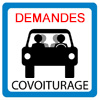

passer une annonce d’emploi


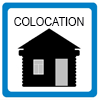
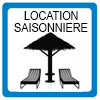

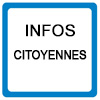
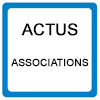
associations, postez vos actualités

participez au courrier des lecteurs
La Guyane c’est ici
La qualité de l’Air avec
ATMO
Photothèque

Lancements 2022
Vol 259 Ariane 5



